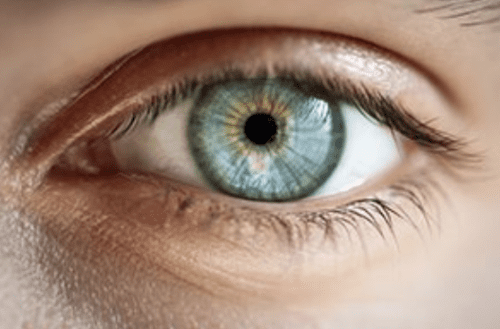Ophthalmologist in Orlando
At UCF Health, our Orlando ophthalmologists provide comprehensive, state-of-the-art eye care for a wide range of vision and eye health concerns. Whether you need a routine eye exam, treatment for an eye disease, or advanced laser eye surgery, our specialists are here to help.
UCF Health’s Orlando ophthalmology team is committed to preserving your vision and enhancing your eye health, across Central Florida. We use cutting-edge technology and minimally invasive procedures to deliver exceptional results.
Orlando Ophthalmologists – Expert Eye Care Specialists
Our top ophthalmologists in Orlando are dedicated to preserving your vision and ensuring you receive the highest standard of care. Whether you need an eye exam, cataract surgery, or specialized glaucoma treatment, we are here for you.
- English
- Farsi
- Persian
- English
- Gujarati
- Hindi
Conditions and Treatments
Our expert ophthalmologists specialize in diagnosing and treating a variety of eye conditions. Below are some of the most common conditions we address:
- Macular Degeneration
- Cataract Surgery
- Dry Eye Treatment
- Glaucoma
- Laser Surgery
- Refractive Surgery
- Secondary Cataracts
- Uveitis
- Cataract removal
- Eye injury
Our comprehensive services in ophthalmology at our Lake Nona office include the treatment of many eye diseases, such as cataracts, glaucoma, macular degeneration, diabetic eye disease, uveitis, dry eye and screening for medication-induced retinal toxicity. We also offer refractive lens exchange — a surgical procedure for patients 40+ who do not yet have a visually significant cataract and do not qualify for cataract surgery but want to improve their vision.

Our Orlando ophthalmologist works closely with other specialists, including our geriatricians, rheumatologists, dermatologists, endocrinologists and primary care physicians to provide thorough eye care for all patients.
Schedule an appointment with your UCF eye doctor in Lake Nona today!
At UCF Health, our top priorities are patient education and the utmost quality of patient care. Our goal is to provide you with the knowledge and solutions that enable you to live your greatest quality of life.
Our Lake Nona eye doctor understands the delicacy and complexity of the eye as well as the importance of preserving optimal vision for as long as possible. We use state-of-the-art technologies and perform a number of minimally-invasive procedures to bring you effective treatments and efficient results in ophthalmology.
UFC Ophthalmology Services in Lake Nona
At UCF Health, our Orlando ophthalmology team provides a full spectrum of eye care services, ranging from routine exams to advanced surgical procedures. We are committed to preserving your vision and using the latest technology to deliver precise, effective treatments.
General Eye Exams
During a general eye exam, our UCF eye doctor will complete a comprehensive examination of the eyes. This exam includes a vision check and an array of tests to assess the overall health of the eye. Many of these general exam tests are also performed to assess specialized problems, such as cataracts or glaucoma.
General eye exams are fundamental in early detection of eye diseases and conditions that can lead to permanent loss of vision if left untreated.
Laser Cataract Surgery
Surgery is the only way a cataract can be removed. Laser cataract surgery includes the removal of cataracts and the replacement of the clouded natural eye lens with an artificial, intraocular eye lens (IOL) to improve vision. Using advanced, femtosecond lasers for increased precision and accuracy, our highly-experienced Orlando ophthalmologist offers a stitchless, painless procedure done with virtually no downtime.
Refractive Cataract Surgery
Refractive cataract surgery is similar to laser cataract surgery, but refractive surgery goes the extra mile to restore vision without the need for corrective eyeglasses after treatment.
Refractive errors, including nearsightedness, farsightedness, astigmatism and presbyopia, often contribute to poor vision. During refractive cataract surgery, our ophthalmologist removes cataracts, replaces the clouded natural eye lens and corrects refractive errors by reshaping or remolding the cornea. We also offer refractive lens exchange — a surgical procedure for patients 40+ who do not yet have a visually significant cataract and do not qualify for cataract surgery but want to improve their vision.
Minimally Invasive Glaucoma Surgery
Glaucoma can be treated with eye drops, laser surgery or surgery performed in the hospital. This condition is associated with increased eye pressure and complications with natural eye drainage, so we offer minimally-invasive glaucoma surgery to facilitate fluid flow from the eye, which effectively decreases eye pressure.
Because glaucoma can progress without a person’s knowledge, scheduling regular eye care exams in Lake Nona with us is crucial for preserving vision.
Why Choose UCF Health for an Ophthalmologist in Orlando?
Our board-certified ophthalmologists provide expert, patient-centered eye care tailored to your needs. Using advanced diagnostic technology, we detect and manage eye conditions early, ensuring proactive treatment and long-term vision health.
We go beyond standard care with a collaborative healthcare model, working alongside primary care doctors, endocrinologists, and specialists to support your overall well-being. Our goal is to help you maintain clear, healthy vision for life through preventive care and advanced ophthalmology services.
Ophthalmology in Orlando: FAQs
Here are some frequently asked questions regarding our ophthalmology services in Orlando. We aim to provide clarity and assurance about your eye care needs.
What services do ophthalmologists provide?
Ophthalmologists offer a range of services including comprehensive eye exams, cataract surgery, laser vision correction, glaucoma treatments, and management of various eye diseases. They also provide routine eye care and vision screenings.
How can I find a qualified ophthalmologist in Orlando?
You can find qualified ophthalmologists locally by searching online for board-certified specialists, checking reviews and ratings, asking for referrals from your primary care physician, or visiting local professional organizations such as the American Academy of Ophthalmology. Give us a call!
How often should I schedule eye exams?
It is generally recommended to have a comprehensive eye exam every 1-2 years. However, if you have existing eye conditions, a family history of eye disease, or other health issues, more frequent visits may be necessary. Always consult with your ophthalmologist for personalized recommendations.
Practicing Location
UCF Health Faculty Physician Practice is located in first-floor Suite 160 & third-floor Suite 360
UCF Health Faculty Physician Practice – Lake Nona
Address
9975 Tavistock Lakes Blvd, Orlando, FL 32827
View on Google Maps
Phone Number
Main: 407-266-3627



